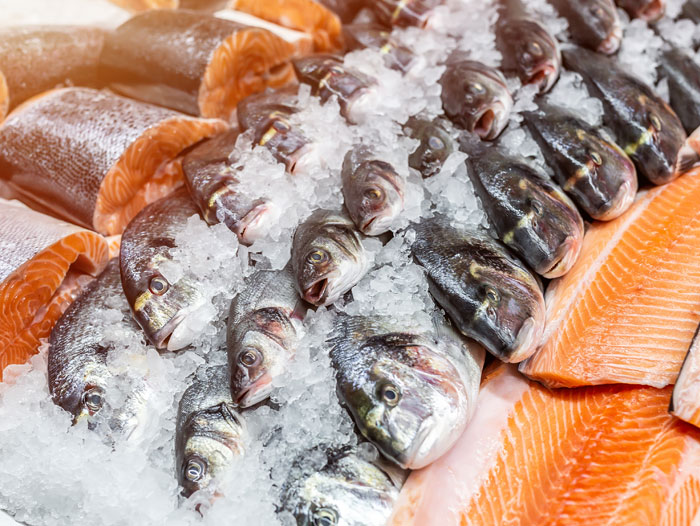Pew Urges WTO Members to Prioritize Fisheries Subsidies Effort After Deal is Delayed Again
July 16, 2021 | 4 min to read

GENEVA — The Pew Charitable Trusts expressed cautious optimism today that World Trade Organization members could soon reach an agreement to reduce harmful fisheries subsidies, noting that although negotiators failed to strike a deal at today’s ministerial meeting, they made significant progress and paved the way for an agreement later this year.
WTO Director-General Ngozi Okonjo-Iweala and the chair of the negotiations, Ambassador Santiago Wills of Colombia, announced that WTO members will continue negotiating with an eye toward reaching an agreement before the WTO’s 12th Ministerial Conference, scheduled for the week of Nov. 30.
Governments spend $22 billion a year on damaging subsidies paid to primarily industrial fishing fleets to artificially lower the cost of fuel and vessel construction, enabling these large vessels to catch more fish than is sustainable by fishing farther out to sea and for longer periods.
In 2015, 193 countries adopted the United Nations’ Sustainable Development Goals. Of those, Goal 14 called for conserving and responsibly using the ocean and marine resources—with nations committing to effectively regulate fisheries, eliminate illegal fishing, and, by 2020, reach an agreement to halt the subsidies that fund destructive fishing practices. However, WTO members missed that deadline despite calls by more than 180 organizations working on marine and environmental protection, animal welfare, sustainable seafood supply chains, and international development to support Goal 14.After Okonjo-Iweala took the helm in March, she set a goal for WTO members to reach a deal at today’s ministerial meeting.
Isabel Jarrett, manager of The Pew Charitable Trusts’ project to end harmful fisheries subsidies, issued the following statement:
“World Trade Organization members are closer than ever to reaching an agreement two decades in the making that would reduce harmful fisheries subsidies. Despite the urging of the director-general, negotiations chair, and more than 180 organizations from around the world, WTO membersfell short of striking a deal at today’s ministerial meeting. However, countries demonstrated their commitment to reaching an agreement this year that prioritizes sustainability and increases transparency.
“An agreement with too many loopholes would undermine the WTO’s sustainability goals. New research found that a WTO deal that eliminates all harmful fisheries subsidies could restore 12.5% of fish biomass to the ocean by 2050; however, the most recent draft of the WTO agreement text probably would yield an increase of only 1.59% over that same period, according to scientists from the University of California, Santa Barbara.
“The final text of the agreement must ensure that governments are not allowed to subsidize irresponsible practices that will hurt those fish populations that have not truly reached biologically sustainable levels. Harmful subsidies applied to the fishing of those vulnerable populations could jeopardize their chances of rebounding.
“Although the final WTO fisheries subsidies deal should include a transition period that allows developing countries extra time to implement the agreement, there should be no permanent exceptions to any rule. And developed nations should never be permitted to provide harmful subsidies unless they can prove that those subsidies do not negatively affect fish stock levels.
“WTO members must seal the deal as soon as possible on a strong fisheries subsidies agreement that delivers on ambitious sustainability goals, ultimately improving the health of fisheries and fishing communities around the world.”
The Pew Charitable Trusts is driven by the power of knowledge to solve today’s most challenging problems. Learn more at www.pewtrusts.org.
